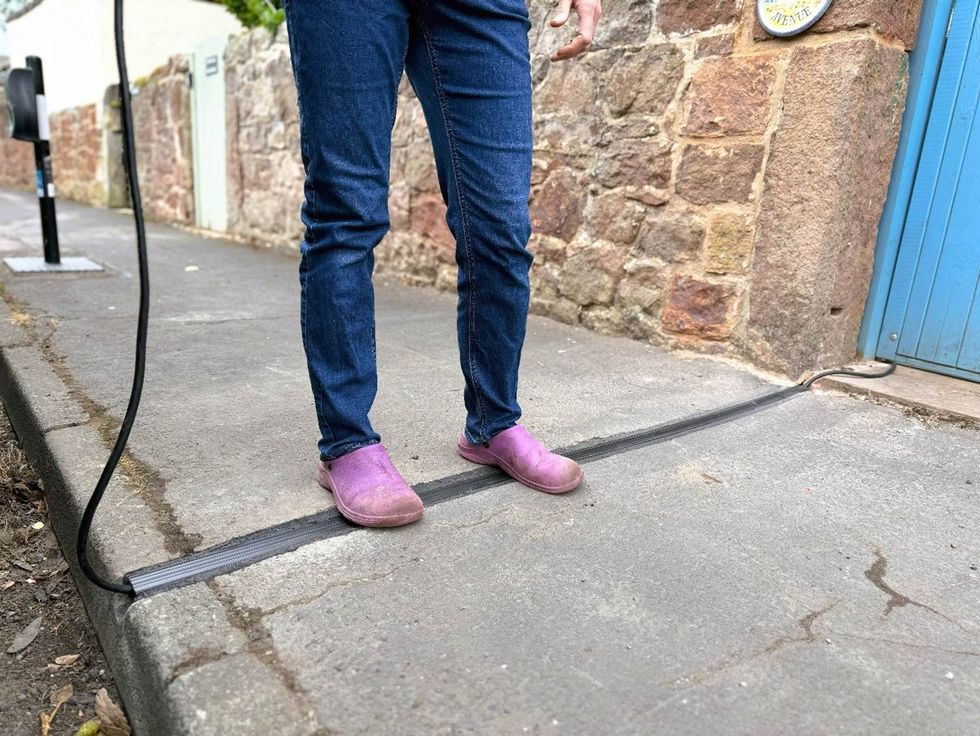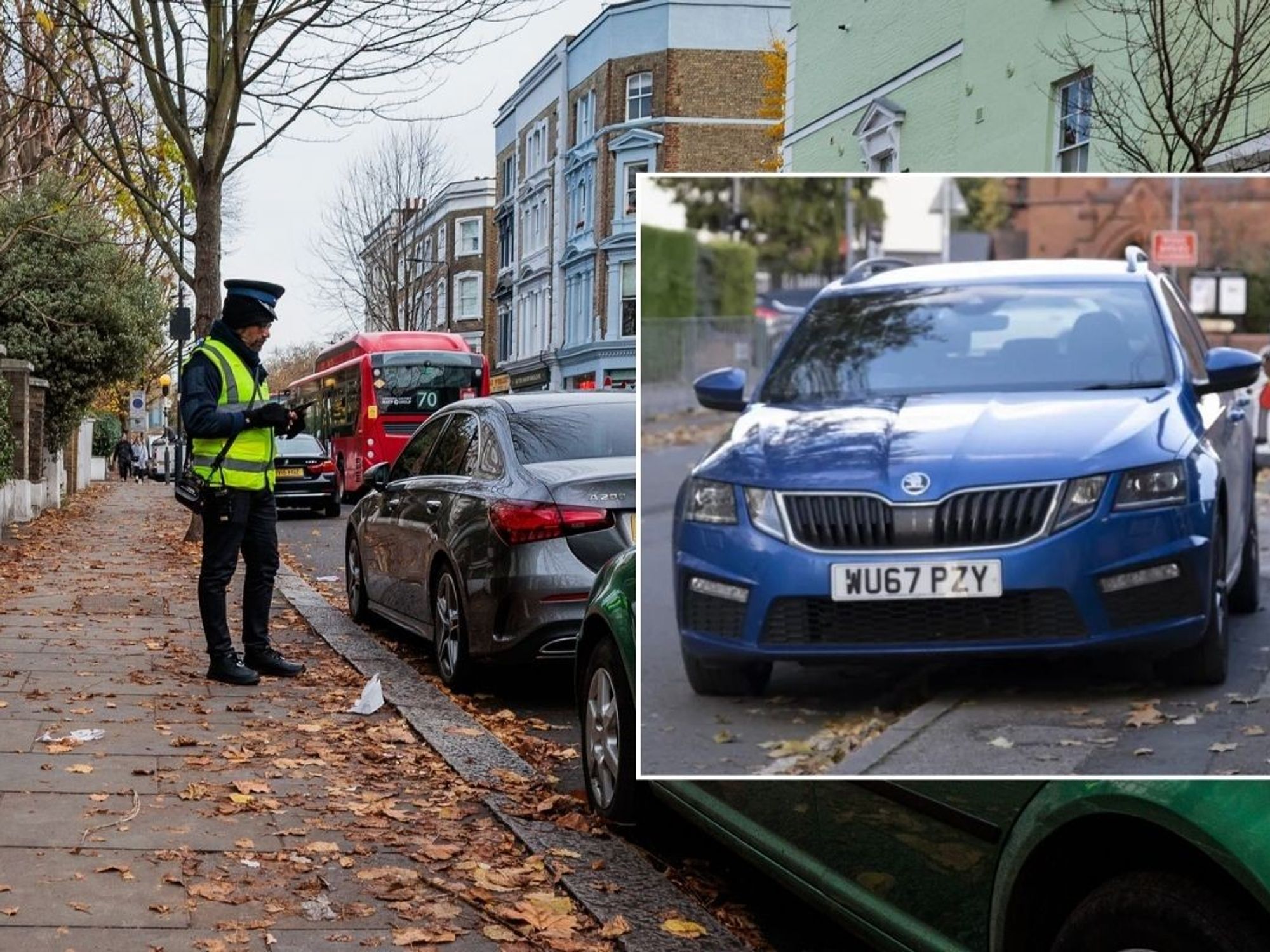Alison Wilkie, from North Berwick, backed the use of Kerbo Charge
KERBO CHARGE
Motorists without a driveway can benefit from cheaper charging costs
Don't Miss
Most Read
Trending on GB News
More drivers are set to benefit from groundbreaking new electric vehicle charging technology which could help them save more than £1,000 a year.
East Lothian Council has become the latest local authority to partner with Kerbo Charge to trial the popular through-pavement charging channel on streets across the area.
The Kerbo Charge channel allows homeowners without a driveway to feed their charging cable through the channel to their cars without causing an obstruction on the pavement.
Electric vehicle owners are able to insert the charging cable into the channel and close the specially designed lid, removing potential trip hazards for pedestrians.
Do you have a story you'd like to share? Get in touch by emailingmotoring@gbnews.uk

The Kerbo Charge channel is helping motorists have confidence in home charging
KERBO CHARGE
The Kerbo Charge channel is able to blend with the pavement surface during installation and does not require surrounding groundwork.
The rollout across East Lothian aims to see an increase in the number of electric vehicles on the road as homeowners without driveways will have the confidence to invest without relying on public chargers.
Alison Wilkie, from North Berwick, praised the new Kerbo Charge channels, saying that she can now safely charge her hybrid Mitsubishi Outlander at home.
Kerbo Charge reported that each time a resident charges their car at home using an off-peak tariff, they can save around £24 compared to charging at a public station.
The trial is being privately funded and could help residents save around £1,100 per year compared to public charge points if the take-up is widespread.
Councillor John McMillan, Cabinet Spokesperson for Environment, Economic Development and Tourism, said: "As more people switch to electric vehicles, they are discovering the benefits of charging from home.
"Not only is it much cheaper than charging in public, but they can leave the house every day with a full battery, and most people are unlikely to need to charge anywhere else, unless they are driving on the odd long journey."
This helps motorists adjust to Rule 239 of the Highway Code which advises EV owners to park close to the charging point and avoid creating a trip hazard for pedestrians.
The Code suggests displaying a warning sign if they are able to, as well as returning charging cables and connectors neatly to minimise the danger to pedestrians and avoid creating an obstacle for other road users.
Kerbo Charge, which is designed in London and manufactured in Derby, is just 30mm deep and 42mm wide with a hinged lid dug directly outside the customer's home.
Michael Goulden, CEO and Co-founder of Kerbo Charge said: "I’m delighted East Lothian Council is trialling home EV charging channels as they really do tackle an unfairness that needs addressing if we’re going to hit our net zero targets."
Data from Zapmap suggests that there are an estimated 850,000 chargers installed at home or work, where the majority of charging takes place.
LATEST DEVELOPMENTS:
 The new charging facilities can prevent any hazardous incidents for pedestrians KERBO CHARGE
The new charging facilities can prevent any hazardous incidents for pedestrians KERBO CHARGEAs of the end of September 2024, there are more than 70,000 public electric vehicle chargers, with almost 103,600 connectors available to drivers.
The scale of public chargepoint installations has grown dramatically in recent years. At the end of 2020, there were less than 21,000 chargers.
Since December 2023, there has been a 32 per cent increase in devices, as well as a 41 per cent year-on-year increase in chargers since September 2023.








